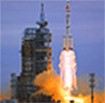Chinese technology is changing and its leadership is using it, along with espionage, to challenge the West in a number of critical areas. The United States is only one of its targets. Previously, Beijing’s spies primarily sought Western technologies as a way to skip generations of develop cost and time to modernize its economy. Today, its acquisition of advanced technologies, and now also its indigenous development, makes the communist giant a threat to freedom-loving people everywhere. This week Nan Mulchandani, the CIA’s chief technology officer, said Director William Burns is preparing for an “infinite race” with Beijing for artificial intelligence and advanced technologies. He argues the US must pivot toward providing American spies with the latest transformative technologies to outcompete China.
Mulchandani says this means updating everything the agency does “from operations to the analytic function, support functions and other piece there.” America, he suggests, needs to alter its thinking toward viewing this not as a race with a finite end point, but as an ongoing competition. Mr. Mulchandani predicted that the next area of competition would “be primarily a software war that is powered by something like AI” rather than hardware fueled by software. That competition, however, is not confined to simply acquiring critical technologies for use in the future. China is also challenging the US in space.
China announced today it launched a groundbreaking mission to retrieve samples from the far side of the moon. The space capsule will arrive in four days and collect 4.4 pounds of moon rocks and regolith, or moon dirt. Beijing’s desire to one day become a space power and scientific force is for pragmatic purposes in 2024 a fait accompli. Rep. Frank Lucas (R-Okla.), chairman of the House Science, Space and Technology Committee, said during a NASA budget hearing this week, that “while the US remains the global leader in space exploration, we face increasing challenges internationally.” Referring to China’s space station, Lucas said: “We cannot allow China to become the front-runner in space exploration… There are too many consequences for our competitiveness, our national security, and our continued ability to explore space.”
A new report released this week by the Center for Strategic and International Studies (CSIS) says that the United States, to further its geopolitical interests and maintain a strong domestic economy, must approach every aspect of economic and trade policy through the lens of global technology competition. The Biden Administration’s approach, it says, discounts the landscape of competition between China and the US and may “jeopardize US advancements in emerging technologies… which could cede the advantage to China….” In particular, the report recommends that the US take action now because quantum and artificial intelligence (AI) need a federal policy to ensure the country can spur the entrepreneurship and R&D efforts foundational to the strength of the technology sector.
As China’s Communist Party (CCP) becomes more hostile to the United States and other Western nations, its aggressive activities abroad expand and intensify. Chinese spy cases far outnumber those of Russia and every other nation. CSIS reports that since President Xi took over in 2012 there have been 224 incidents of spying. Estimates of the long -term economic, scientific, and national security cost to the US run into the billions and have “created immeasurable damage to national security with the theft of weapons technology, including nuclear weapons test data… China has added the theft of massive quantities of personal information, political coercion, and influence operations, to its espionage activities.” The CSIS reports says that 49% of incidents of spying in the US directly involved Chinese military or government employees, with private Chinese citizens accounted for 41%. In 29% of the espionage cases the person involved was attempting to acquire military technology, while in 54% of the incidents it was related to commercial technologies. Almost half of the cases involved cyber espionage, usually by state—affiliated actors.
No matter where one turns today China is challenging the West, from the depths of our oceans to outer space. The United States cannot count on China to be a good global citizen and refrain from attempting to enforce its vision of world order with Beijing at the apex. The time is growing short for the West to take action.
Daria Novak served in the U.S. State Dept.
